
Swiss president defends ban on re-exporting war materiel
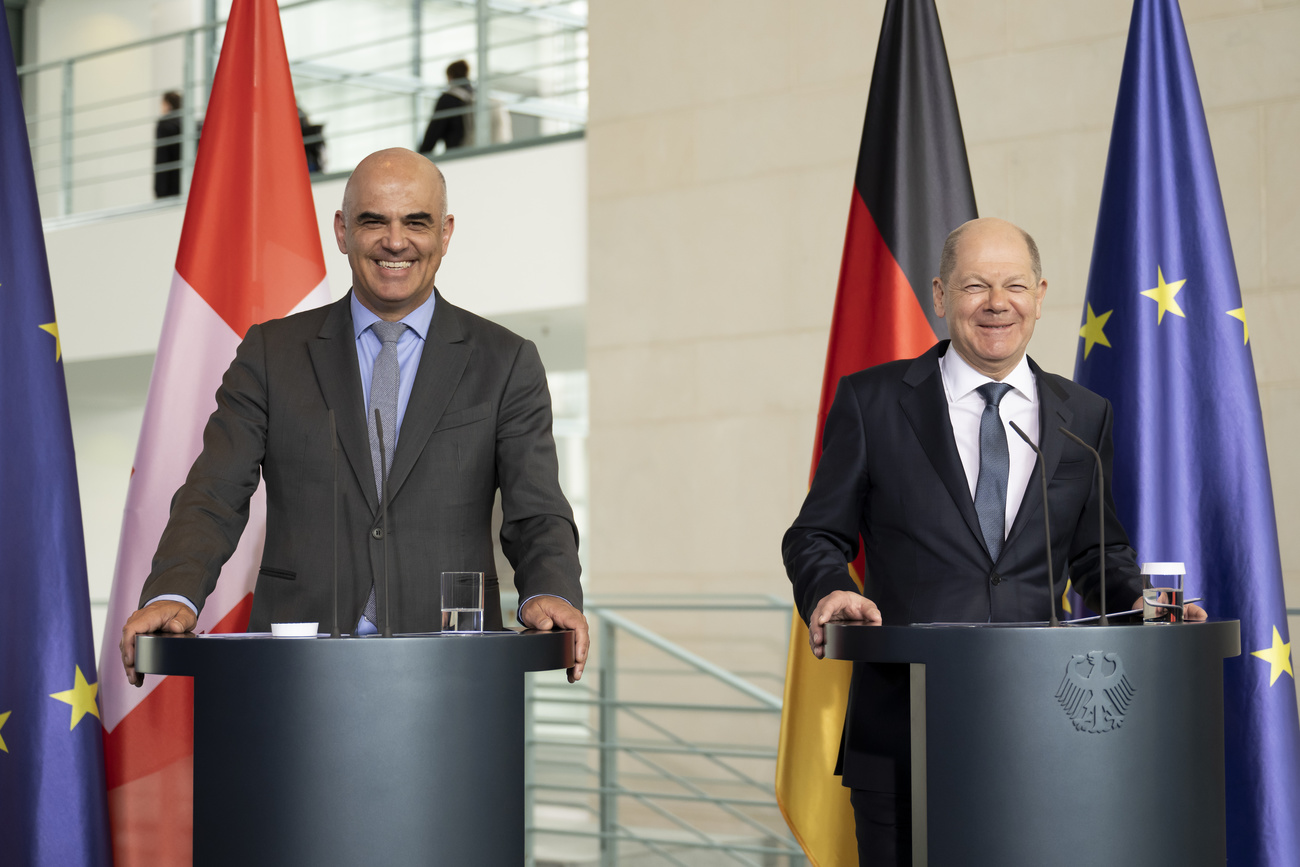
Switzerland is not backing down from its ban on the transfer of war materiel, Alain Berset has insisted during talks with German Chancellor Olaf Scholz in Berlin.
Neutrality means that Switzerland does not support any side militarily in conflicts, said Berset, the Swiss interior minister who also holds the rotating Swiss presidency this year, at a media conference with Scholz on Tuesday. “We cannot be asked to break our own laws.”
However, Berset said it was necessary to look at “how one should, must or can develop in this regard”. This discussion was certainly taking place in Switzerland, he said. “It’s important that we stick to the rules and adapt them if necessary.”
He repeated that neutrality did not mean indifference. “Maintaining neutrality also means credibility. The international community must join forces for the benefit of the Ukrainian people,” he said.
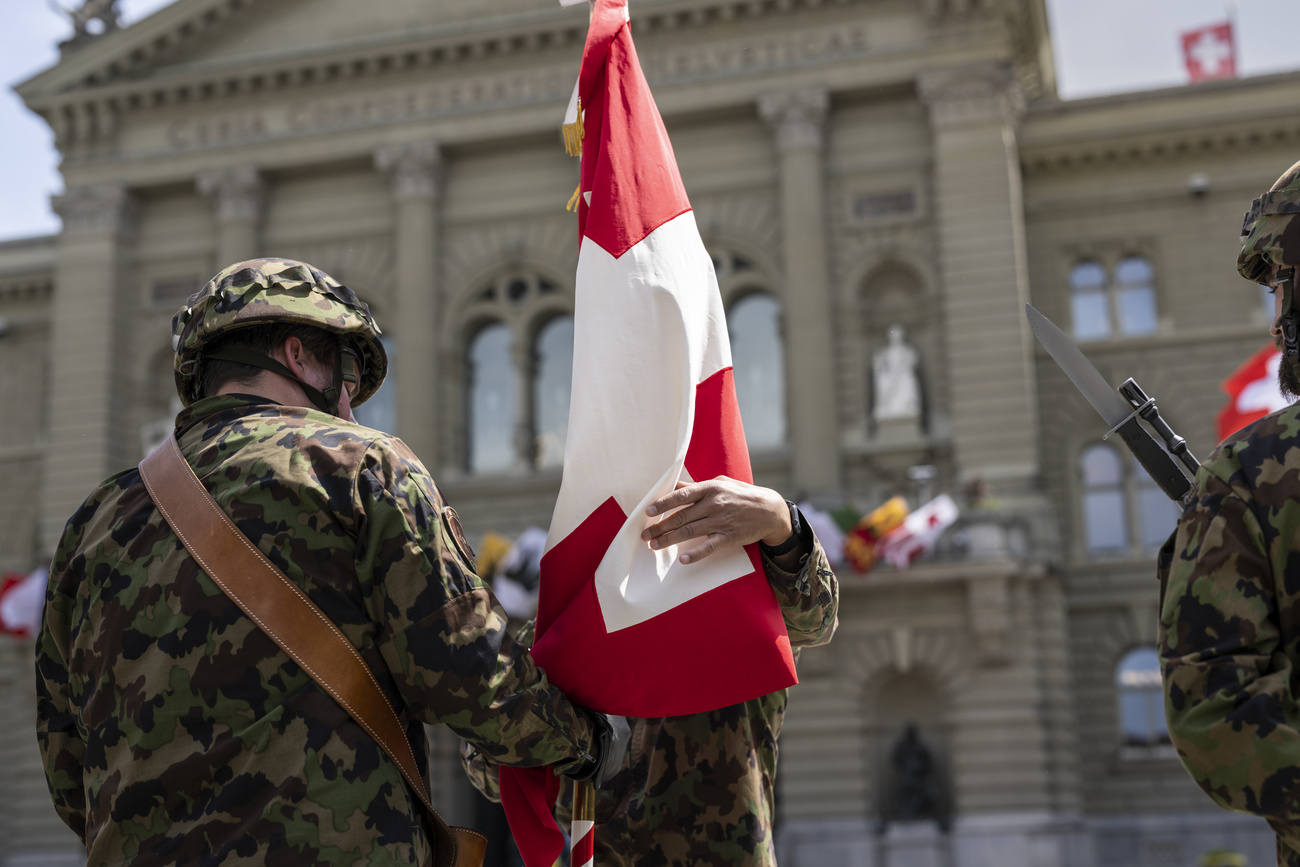
More
Wanted: politically convenient definition of ‘neutrality’
Berset condemned Russia’s war against Ukraine in the strongest terms and insisted Switzerland was very much committed to humanitarian aid for Ukraine and was doing everything possible to seriously implement sanctions against Russia.
“We adopted the [EU] sanctions and of course we take this completely seriously and we are simply doing everything that can be done in order to enforce them seriously,” he said. Scholz praised Switzerland’s adoption of the EU sanctions.
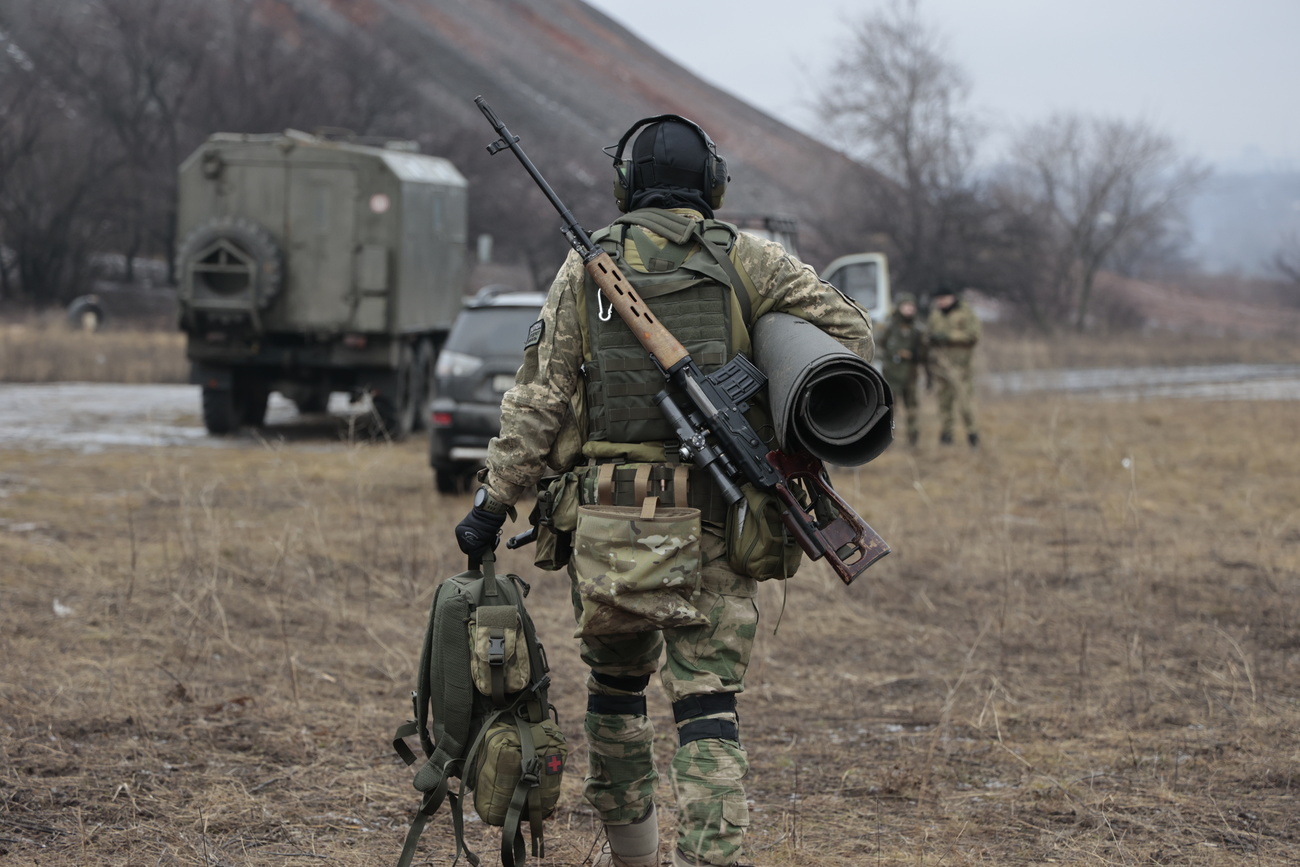
More
Switzerland adopts tenth sanctions package against Russia
The interior ministry said Switzerland was focusing on humanitarian aid and had taken in many refugees. It was also supporting Ukraine with CHF1.8 billion ($2 billion) until 2028 and launched reconstruction with the conference in Lugano in July.
Under pressure
Switzerland is under strong international pressure to allow re-exports of Swiss-made weapons. Spain, Germany and Denmark, among others, have requested that Swiss-made war materiel be sent to Kyiv. The Swiss government has so far always opposed this, invoking the law of neutrality and the law on war materiel.
Two interventions calling for a relaxation of the re-export provisions failed in the spring session of parliament. Several parliamentary initiatives on this subject are still pending.
Switzerland has also recently been called upon to do more to track down the money of Russian oligarchs. Several ambassadors of the G7 states have demanded in a letter that the Swiss government take stronger action.
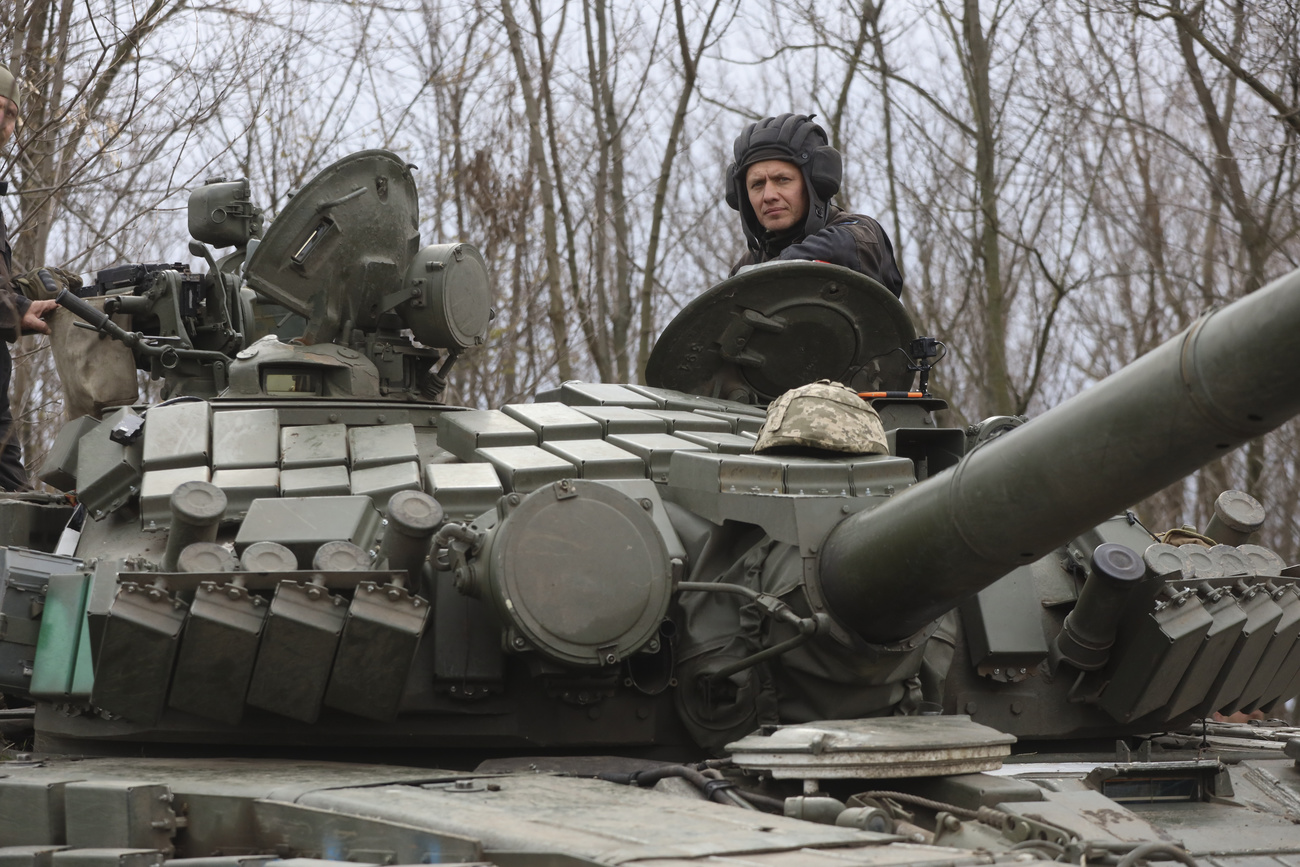
More
Swiss ‘could lose military contracts’ over re-export restrictions
With regard to Switzerland’s strained relations with the EU, Scholz praised the preparation of a negotiating mandate for a framework agreement and the rapprochement that has taken place.
In May 2021 the Swiss government walked away from negotiations with the EU on an institutional framework agreement. Switzerland prefers to continue along the bilateral path. The EU initially reacted by, among other things, removing Switzerland from the list of associated states in the Horizon Europe research programme. Since then, Switzerland and the EU have come closer in exploratory talks.
Switzerland’s first presidency of the UN Security Council next month was also discussed. In addition to Scholz, Berset met German President Frank-Walter Steinmeier.
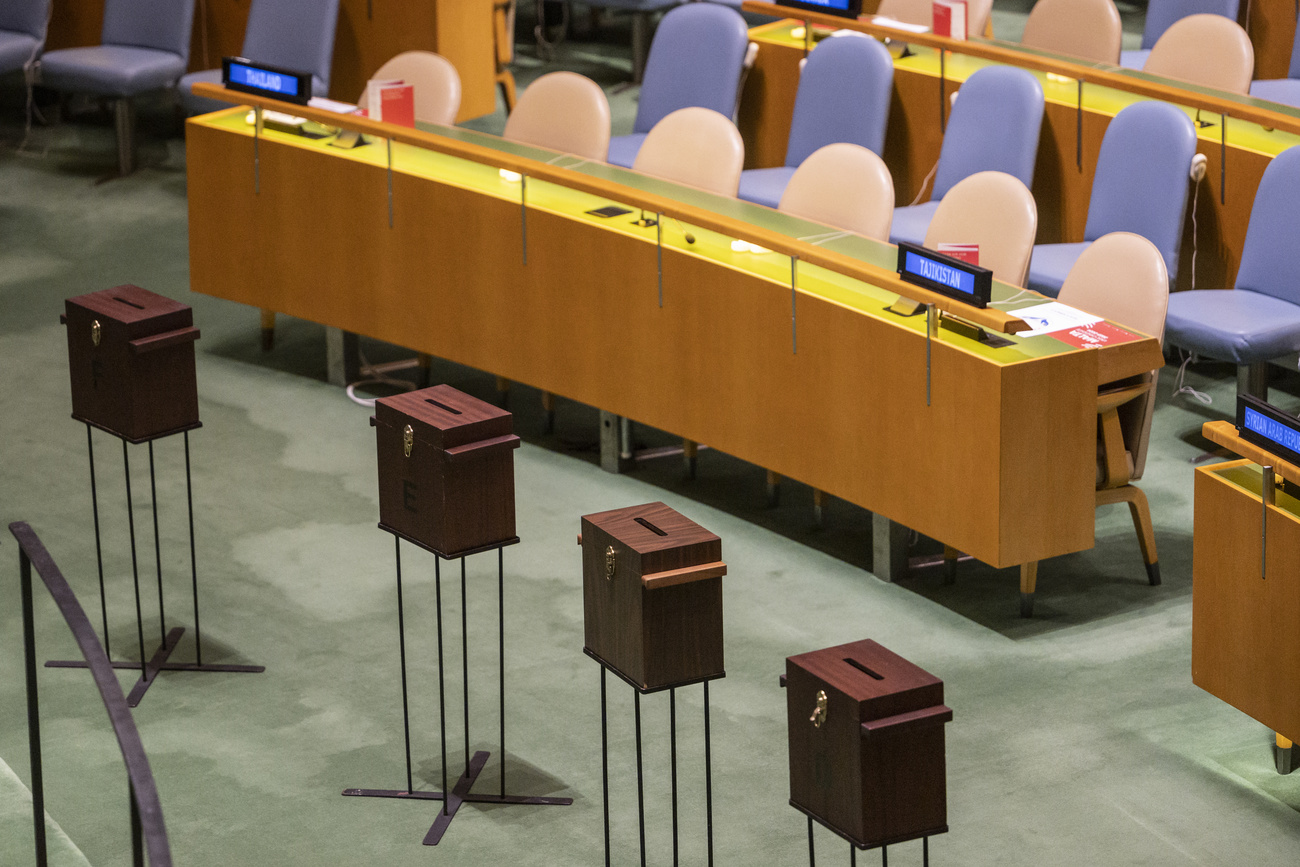
More
Switzerland elected to UN Security Council

In compliance with the JTI standards
More: SWI swissinfo.ch certified by the Journalism Trust Initiative
















![The four-metre-long painting "Sonntag der Bergbauern" [Sunday of the Mountain Farmers, 1923-24/26] had to be removed by a crane from the German Chancellery in Berlin for the exhibition in Bern.](https://www.swissinfo.ch/content/wp-content/uploads/sites/13/2025/12/01_Pressebild_KirchnerxKirchner.jpg?ver=cb688ed5)














You can find an overview of ongoing debates with our journalists here . Please join us!
If you want to start a conversation about a topic raised in this article or want to report factual errors, email us at english@swissinfo.ch.